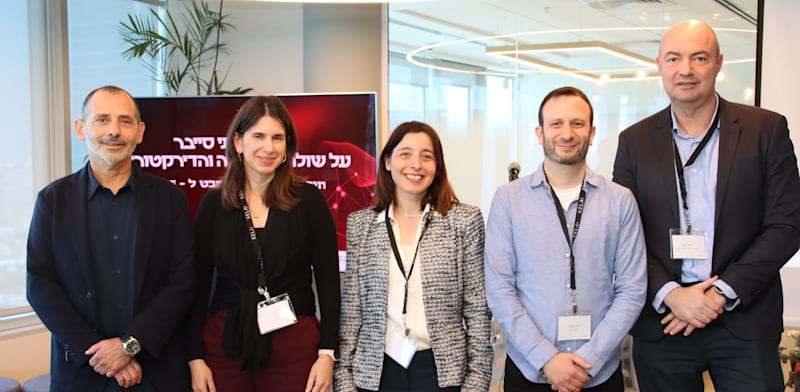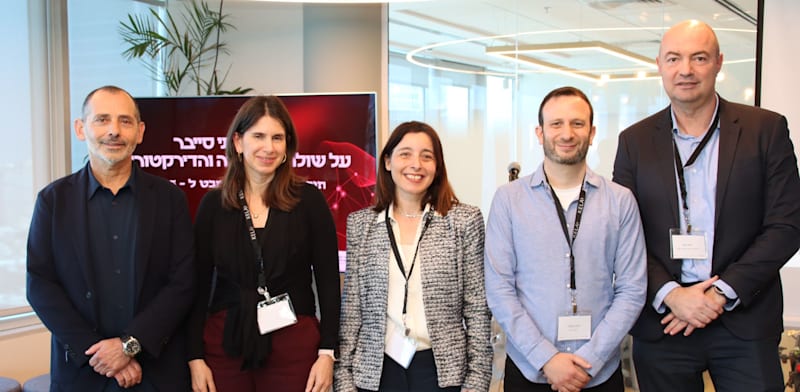

Former head of Israel’s National Cyber Directorate Yigal Unna warned that Chinese AI model, DeepSeek lowers the entry threshold for cyberattacks, thus enabling targeted attacks on an unprecedented scale. Speaking at the Cyber Risk Management Conference, held in recognition of International Data Privacy Day, Unna highlighted that cybercrime has become the world’s third-largest economy, with damages estimated at $10.5 trillion. The conference was organized by the KELA Group, in collaboration with Lipa Meir Law Firm, Howden Insurance Brokers, and Bank Hapoalim.
Adv. Vered Zlaikha, a partner and the head of the Cyber and AI practice at Lipa Meir & Co., addressed the governance challenges of combating cyberattacks. She said, “As seen in regulators’ responses to cyber incidents in recent years, even in cases where state-sponsored attacks are anticipated, organizations are still expected to maintain an appropriate level of cybersecurity and data protection in accordance with applicable regulations. This includes implementing suitable security measures, ensuring oversight by relevant executives and corporate officers, establishing compliance mechanisms, and more.”
She also discussed legal challenges faced by companies in relation to AI systems. Adv. Zlaikha noted that while AI holds vast potential, organizations must also consider the associated risks. She stressed that corporate executives should promote a suitable corporate governance framework for AI risk management, including the formation of a dedicated team comprising business, technology, and legal experts, conducting risk assessments, issuing clear employee guidelines for AI system usage, and developing an enforcement plan.
“Most cybersecurity breaches in 2024 originated from identity theft facilitated by easily accessible infostealer software purchased by attackers, enabling the theft of all data stored in browsers,” said Itzik Kesler, CTO of KELA Group, at the conference. Kesler explained that such attacks are becoming increasingly costly and difficult to detect, as attackers exploit legitimate corporate accounts. “These compromised accounts ‘leak’ into the dark corridors of the Internet, are traded among attackers, and create a snowball effect that can severely impact critical systems,” He warned.
Addressing corporate defense strategies against cyber threats, Dalit Caspi-Schachner, Cyber Defense Strategy Lead at Bank Hapoalim, stated “Today, every organization must balance responding to emerging threats with driving innovation. Our cybersecurity solutions must support organizational advancement.” She added that “it is essential to develop a cyber strategy that integrates insights from the security domain with business and technological needs emerging from the field. This strategy enables alignment between executive and board objectives and overall organizational efforts.”
Concluding the conference, Shay Simkin, Cyber Insurance Practice Leader at Howden Specialist Insurance Brokers, revealed that in 2024, ransomware Payments covered by insurance companies surpassed USD 1 billion for the first time. “Sixty percent of small and medium-sized businesses that suffered a cyber incident faced bankruptcy within six months,” Simkin noted. He emphasized that “cyberattacks have become a primary threat to corporate stability. With technologies like the new Chinese model, DeepSeek R1, which can replace virtual employees, the risk of cyberattacks becomes even more critical. Disabling such technologies through a cyberattack could cripple an entire company.”
Published by Globes, Israel business news – en.globes.co.il – on February 9, 2025.
© Copyright of Globes Publisher Itonut (1983) Ltd., 2025.
https://res.cloudinary.com/globes/image/upload/t_800X392/v1739106844/direct/kela-cyber_sq3qce.jpg
2025-02-09 09:15:06